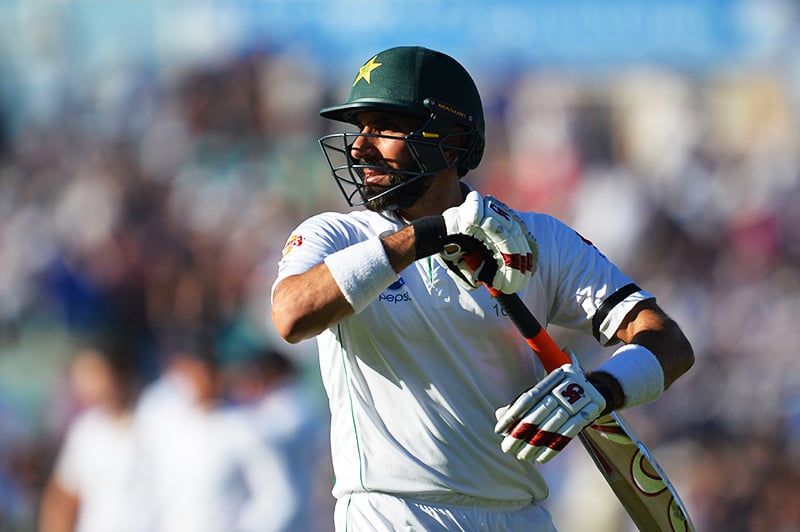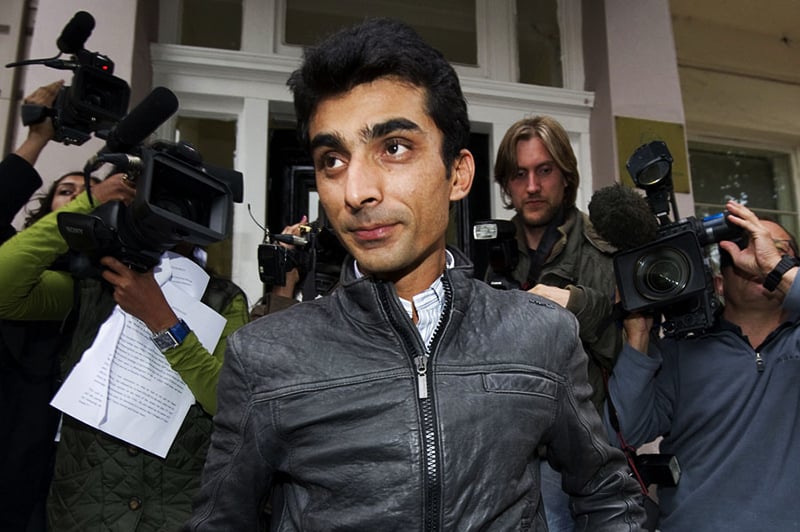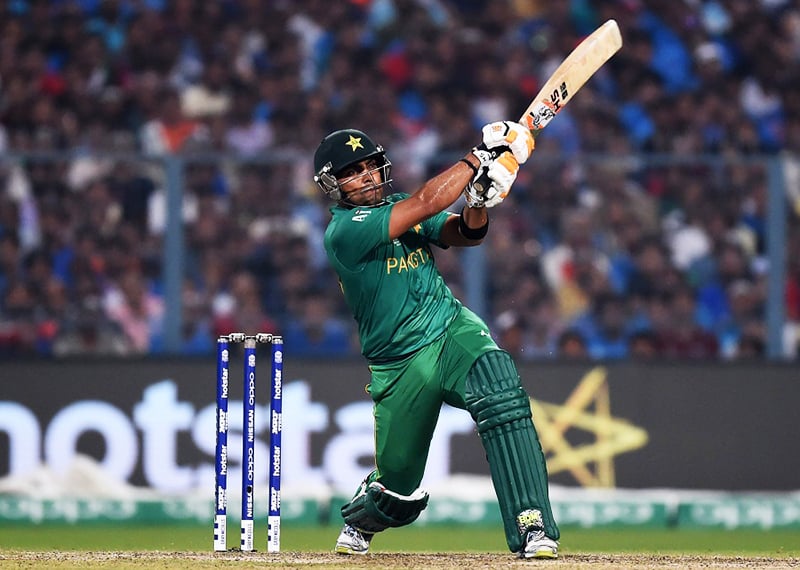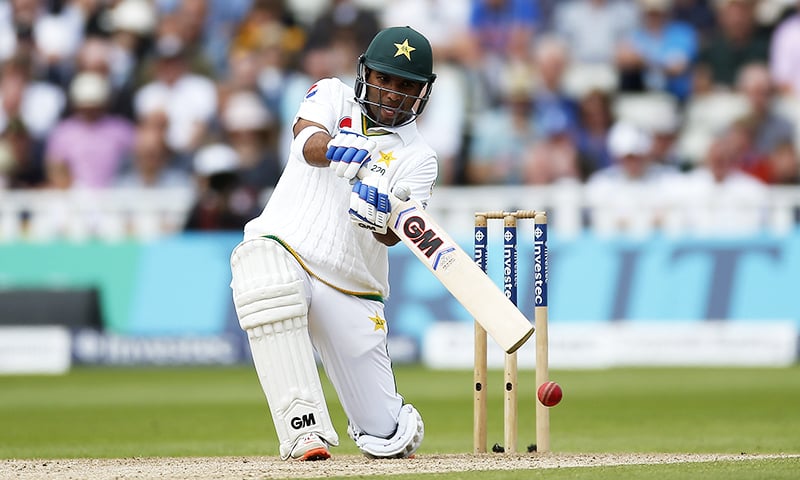“Four bowlers are too few on a pitch like this, how many overs will a fast bowler bowl in a day? This is why England scored a lot of runs in the last session today,” said Sultan, a 20-year-old Pakistani cricket fan I was visiting in a government hospital in Istanbul.
Sultan’s story is a tragedy of sorts; misfortune besieged him when a bomb went off 25 metres from him outside a Shia mosque in Karachi. It took away his french fries cart and his livelihood. Under the burden of being a breadwinner, he wandered (illegally) to greener pastures abroad.
Further catastrophe struck him as he fell off a ladder in a factory in Istanbul. No insurance, no social security, no work permit and not even a passport to show for. For four months, Sultan lay in bed with broken bones without any professional treatment until he was found by one of God’s men.
Upon initial testing, the doctors suggested that his right leg has to be chopped off as a potentially fatal infection spreads through his body. The kid craves for his family, but going back to Pakistan is not an option. The treatment is unaffordable and chances of him surviving back home are minimal.
As Sultan and I say good-bye, we agree that England should declare in the first hour of play tomorrow.
Read: Pakistan must focus on developing cricket talent, says Ian Pont
Next morning, Captain Cook — echoing Sultan’s sentiments from the previous night — explained how he was “proud of this young team, and of their awareness that Pakistan have only four bowlers. If they dig into them deep, they could make them pay”. He wanted a few more runs before he declared, he added.
Soon, Moeen Ali unleashed himself on Yasir, and Cook did what he had said: setting Pakistan an improbable target.

All hopes were on Hafeez to redeem himself and give Pakistan a good start. On Younis Khan to find his balance and remain true to his fourth inning record.
On Misbah to continue the legend of Pakistan’s greatest Test captain. On Asad Shafiq and Azhar Ali the successors of their ageing mentors.
Hope is a good thing, sometimes the best of things.
48 overs later, Ramiz Raja was praising 20-year-old Sami Aslam for his magnificent innings on how “he had remained unfazed on what was happening on the other end”.
Pakistan was 124/4, with all the senior men back in the pavilion. Moments later, Asad Shafiq played a poor shot and Sarfraz Ahmed followed one outside off, both out for a duck. Sami stood with 70 runs to his name and an impossible task.
The Pakistan batting line collapsed, as it often does. Young Sami had been the best batsman for his team in this Test match. His chanceless 82 in the first innings met with an untimely end, while his second innings did not get the support it merited from the other end.
Watching Sami stand-alone reminded me of 21-year-old Mohammad Wasim’s unbeaten ton on debut as wickets tumbled around him. Many other youngsters making an early mark immediately came to mind.
In fact, from Pakistan's current generation, four of them have scored a century on debut. But, were they able to fulfill their true potential? Will young Sami?
Taufeeq Umar
In 2001, when 20-year-old Taufeeq Umar burst on the scene with a hundred on debut, his opening partner was Saeed Anwar scoring a blistering 101 off 104 balls.

Pakistan batted once, and on day three, they recorded their highest victory margin in Tests. Celebrations dampened as a teary-eyed Anwar announced that his young three-year-old daughter Bismah had died that afternoon.
Nobody knew Anwar had played his last Test innings, just managing to cross 4,000 Test runs (read: unfulfilled potential) in his final outing.
However, the mantle it seemed had been passed. Taufeeq’s hundred in South Africa earned him a quick reputation. He was technically sound and played in the V. In his first three years in Test cricket, he averaged 48.97 in 32 innings.
In the next three years, he played only six games; in the following three, he played none.
He finally got another chance when Misbah became the captain in 2011 and scored some valuable runs. But Taufeeq was 30 by then and had played only 25 Test matches in a span of 10 years.
His most recent First-class scores read: 38, 18, 247 and 35 under the captaincy of Misbah-ul-Haq at SNGPL.
Today, he is 35 years old and has scored 2963 Test runs at a career average of a shade under 38, perhaps a shadow of the player he could/should have been.
Yasir Hameed
In 2003, 25-year-old Yasir Hameed became only the second man in Test Cricket history to score a hundred in each innings on debut. 170 in the first and 105 in the second innings secured Pakistan's victory over Bangladesh as the debutant was awarded Man-of-the-Match.
Pretty on the eye and a solid technique made Yasir catch an instant fancy of Pakistani cricket fans. His immediate success in the ODI’s also gave him fame, getting to 1000 runs in just 22 outings; a sub-continental batting record at the time.
His shots and timing remained fluid but he failed to develop the temperament required to score big. Getting plenty of starts and then throwing them away, often through extravagance.

Selection inconsistencies also hampered his progress and more importantly his confidence. In January 2005, he scored two fifties during a Test match in Sydney and was dropped for the following Test. Again, he scored a fifty in an ODI against England in 2005 and was dropped for a full year after that.
Read: Pakistan's exile is hurting next generation cricketers, says Wasim Akram
Yasir played 25 matches spread over a career of eight years and averaged only 32.41 in Test cricket. His ODI career was over even sooner as he averaged 36.87 over a span of four years. His last ODI game was in 2007.
Today, Yasir is 38 years old and dreams of a comeback to the national squad. However, a contract with the Masters Champions League (MCL) has almost sealed the fate of his international career.
Yasir will go down as the many “what ifs” of Pakistani cricket.
Fawad Alam
In 2009, 24-year-old middle order batsman Fawad Alam was asked to open the innings for Pakistan on his Test debut. Pakistan was bundled out for 98 in the first innings.

Fawad walked out again in the second innings with a deficit of 142 runs on the board. Almost six hours later, Pakistan were 285/1.
Fawad had made 168 runs and his captain Younis Khan had partnered him with 82 off his own. 35 runs later, Pakistan were all out at the score of 320.
Rumours of serious infighting had broken out and echoes of deliberate under performance were heard loud and wide in the cricketing grapevine.
On the eve of the loss, then-PCB chairman Ijaz Butt released a statement:
“There can be no chance of factionalism in the team as I believe Younis has good relations with seniors”.
Under accusations of match fixing, oath-takings on the Quran, discipline, infighting and under-performing, six months later, Rana Naved-ul-Hasan, Shoaib Malik, Younis Khan, Mohammad Yousuf, Shahid Afridi, Umar Akmal and Kamran Akmal were slapped with various bans and fines.
Fawad Alam played two more Test matches for Pakistan that same year and was never recalled to the Test Team again.
He is arguably Pakistan’s most successful domestic batsman in the last decade with over 15,000 runs; averaging 56.71 in First Class and 47.68 in List ‘A’. He translates domestic performance to the international level too, averaging 41.66 in Test Cricket and 40.25 in ODIs (second highest among Pakistan’s current batsmen).
He was rated as the fittest cricketer in the country along with Mohammad Rizwan in a recent test taken by 31 of its top players. He is regarded as one of the best fielders in the country and can add a dimension to the bowling attack.
He is almost 31 years old and has played three Test matches. Surprisingly, he has not killed himself (or anyone else), or had a complete nervous breakdown.
Fawad’s best years might already be behind him, if not, they will soon be.
Umar Akmal
In 2009, a 19-year-old boy made his debut in New Zealand. He walked in with the score at 74/3 and soon it was 85/5 as his brother Kamran joined him at the crease. In the next two hours, the brothers had put on a 176 runs. Umar scored a fluent 129 on debut with a strike rate of 80.62.
All those who witnessed the knock attested to the fact that he was extremely talented. However, Umar’s entry to the team coincided with Kamran’s abysmal form behind the stumps. Umar was accused of faking injury on his first tour in a bid to pressurise the team management to retain elder brother Kamran.
Both brothers were accused of being involved in spot-fixing scandals and young Umar kept running into trouble with the authorities. He got starts but was not able to convert them into big scores. His ball-striking ability continued to impress but his temperament perpetually faltered.

Off the field, Umar got involved in one controversy after another. On top of it, he failed to live up to the expectations of the entire nation.
At the start of his career, he piled up 555 runs in five Test matches at an average of 55.50 with one ton and four fifties. But his Test career lasted for less than two years. It has been almost five years now and Umar has not played a single Test.
Umar has played multiple Test matches in New Zealand, Australia, England and West Indies, but has only been given a chance to bat once in UAE (Pakistan’s adopted home).
He has been in and out of the national squads in the shorter forms of the game and continues to land into trouble with the administration.
It is extremely easy to blame young Umar for his misfortune. Another way to look at it is that Pakistan cricket has not been able to polish and groom one of its most talented batting assets.
Umar is only 26 years old and has enough time to rectify his attitude and mature. Perhaps, his best is yet to come.
The list for Pakistani batsmen with a century on debut also include, Javed Miandad, Saleem Malik, Mohammad Wasim, Ali Naqvi, Azhar Mehmood and Younis Khan.
Sami went into the Edgbaston Test on the back of four first-class fifties and six hundreds (three of them scores over a 150), showing his hunger for runs. He toured England three years ago as the Pakistan under-19 team captain and scored two centuries in a tri-series, including 110 in the final against England.
The exuberance of youth has a sense of fearlessness, a zest of boldness with a dash of heroism. Many young men burst on the scene with vigour, but only those who channel this energy in the right direction attain longevity.
Read: Pakistan's only cricket museum — Guarding the wicket for the Gentleman's Game
The passage of time can turn confidence into self-belief and brashness into resolve. Or, it can very quickly be replaced by the burden of expectations and the fear of failure.
The job of senior teammates, management, cricket board, media and their fans is to provide an environment where these talented young boys of today can blossom into great men of tomorrow.

In 2009, 17-year-old Amir broke through the national squad to find himself surrounded by criminals that went unpunished, and was captained by their ringleader.
Today, 20-year-old Sultan is crippled for life and stranded thousands of miles away from home. He was once a fast bowler and played for Zone I in Karachi, before he became a victim of the climate we as a nation provided him with.
Far too often, Pakistani selectors pick and drop players (mis)judging form and ability across formats. More often than not, they are axed and reselected and then discarded after a game, only to make a comeback with a sword hanging over their heads.
Sami got his chance in the 50 over format at Lord's on Saturday. He scored one run of the first nine balls before he tried to pull one to the fence. He got out to a decision that could have gone either way. Luck and fate play an extremely important part in cricket, just like in life.
It is too early to say but Sami is another young lad with visible talent; the fact that he is an opener makes him a rare commodity in Pakistan. He is sure to get his chance, but how he is trained, handled, reported, selected, dropped, nurtured, groomed, loved and hated by the stakeholders of Pakistan cricket will define what becomes of him.
Sami needs an environment that gives him the opportunity to give his best crack at life, as does Sultan.
Sultan’s name has been changed to protect his identity.


















































